The survey: ''What lays behind Putin's loud statement on problems of teaching the Russian language?''
Vladimir Putin has made statements that threaten to undermine arguable but quite stable Tatarstan ''language'' construction built over the last 20 years on Thursday at a meeting of the presidential council on interethnic relations in Yoshkar-Ola. The loudest fragment of the speech of the president of the Russian Federation: ''Forcing people to learn a language that is not native for them is also unacceptable as well as to reduce the level and time of teaching Russian. The heads of regions of the Russian Federation, pay attention to it.'' Realnoe Vremya asked its experts: Why has this rebuke been voiced right now, and what can be the result of implementation of the ''terrible'' linguistic order?
-
-
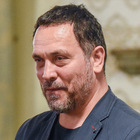
Maksim Shevchenko political scientist, journalist, member of presidential council of the Russian Federation for development of civil society and human rights
-
I think Putin was talking about adults. Because forcing children to learn is a responsibility of adults. Forcing children to learn languages that are not their native, is, in fact, that we, adults, just have to do in order children were fully developed, intelligent and educated. No wonder kids in schools are taught not only Russian or Tatar, but also English, French, German, Chinese. It is natural that children do not want to learn foreign languages because they do not want to learn in general.
So, maybe, the president had in mind not the education system but some abstract people of indeterminate age, whom someone caught and forced to learn a non-native for them language. It is, of course, a disgrace. For example, when an adult Dargin is forced to learn Avar or an adult Tatar is forced to learn the language of the Chukchi, it's horrible. Although personally I have not heard about such cases.
I think, that the more languages a child knows by 10 grade, the better it is. In the classical Russian school, children were forced to learn certainly not native to them Latin, Greek and even a couple of languages — one can see a list of them when visititng the village of Kokushkino and looking for the appraisal sheet of Vladimir Ulyanov. If I'm not mistaken, there are six or seven languages, and only one of them was his native.
What would I do if I was ethnic elite of Tatarstan? I would fight for ethnic rights. I believe that the consciousness of the peoples of Russia, including the Tatar people, does not threaten and does not contradict the consciousness of the ethnically Russian people, to which I belong according to the will of God. But what the elite will come up with – it is their elite business. I'm not elite luckily and I don't want it to be. I would like to be, as Anna Akhmatova said, ''with my people where my people, unfortunately, was.''
Of course, we cannot force anyone, but we're not angels, we live not in heaven, not in the heaven bureaucratic offices, not at the meeting of nationalists of various stripes — we live on the street. We perfectly know that on the street, for example, in Kazan or Naberezhnye Chelny, all serious guys from an early age unite on a territorial basis. Sometimes knowledge of the language in the street plays an important role in the social growth of a person. As well as in matters of security, if you are young people of school age, for example. If you can't answer the question who are you and where are you coming from so that you were understood by other guys — it can have serious consequences for you. There is no normal guy in Tatarstan who would not encounter with this reality, forming male and human qualities and human dignity.
Therefore, knowledge of the language in real industrial multinational region, where nations are not going to assimilate, where they will live and continue in history — it is the issue of including real communication. Not a theoretical dialogue at forums and conferences, but real communication that takes place in the outskirts of Kazan or in its central part, for example on Tukay Street.
-
-
-
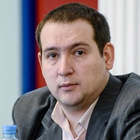
Mikhail Neizhmakov political scientist, senior analyst of the Agency for political and economic communications
-
It should be noted that Putin in his statements deliberately highlighted that learning the languages of the peoples of Russia is a ''constitutionally guaranteed right''. But the president noticed that this right is ''voluntary''. Putin can hardly be accused of bias towards the languages of the peoples of Russia. Suffice it to recall, for example, that after the statement he made in March 2014, the Crimean Tatar language was included in the number of state languages in the Republic of Crimea (in the Constitution of the Republic, adopted in 1998, when the region was under the control of official Kiev, the language was mentioned as ''along with state ones'').
The current statement by the president can have another aspect. If learning the languages of the peoples of Russia is a ''voluntary'' right, then the obligation to know other official languages of the specific country, except Russian, for its head also, over time, can be put under question.
-
-
-
Azat Akhunov Associate Professor at Institute of International Relations, History and Oriental Studies, the Kazan Federal University
-
Personally, I have the impression that Putin expressed not his personal opinion but the points prepared by his staff. The thing is each event should have its own general topic. Since the council for interethnic relations took place in the Volga Federal District, members of the staff, apparently, by surfing Internet identified the most topical issue. In general, there are no any other inter-ethnic problems in the Volga region and the Urals, so they chose this topic.
Besides, lately there have been a lot of talks about the mandatory teaching of the Tatar language in Tatarstan, the Bashkir language in Bashkortostan, a group of activists who constantly make a big fuss of it has been formed. In fact, there is some truth in Putin's words— it is impossible to force a person to learn a second language. It is necessary to interest or motivate people. But we still have problems with that. Another point, the study of ethnic languages in favour of Russian can be banned at all. This will be a big challenge for our Tatar nation, for our ethnic identity. In the context of globalization we first need to keep the education in Tatar, Tatar language lessons for the Tatars, otherwise in the near future we will get a generation of mankurts-globalists.
-
-
-
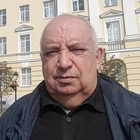
Lev Zharzhevsky local history expert
-
I think that these statements are connected with the political situation in some republics. Putin has been repeatedly criticized for impunity of local officials-enlighteners, ignoring one way or another requirements of relevant federal laws and regulations. Most likely, the situation has been reviewed and it was decided to bring those officials to their senses. The time when Putin had to put his face in katyk publicly in search of the loyalty of the local elite, is in the past: now he can do it with whoever he wants.
What will be the result? Nobody knows. Compliance with the requirements of Putin (read the execution of the federal laws, etc.) will be a psychological trauma for ethnic elites. They just can't live with it: the so-called public will be mobilized, it is not new. Only God knows what will happen then.
-
-
-
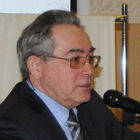
Marat Lotfullin senior researcher at Center for history and theory of national education, Institute of History, Tatarstan Academy of Sciences, former deputy chief for education management of Kazan
-
The main problem is in principle of voluntary study of native languages in Russia. According to international standards, which Russia recognizes, the fluency of the native language is the main educational competence, that is, the academic degree is not issued without passing examination in the native language. Voluntary study of native languages leads to general ignorance in native languages. For example, in the regions of Russia only 7% of Tatar children study their native language in schools.
The Putin's statement will lead to a weakening of the teaching of native languages even in the titular republics. He ignores the constitutional right of the constituent republics of Russia to establish official languages with obligatory study in school, similar to the Russian language. This right is confirmed by the Constitutional court of Russia and is not negotiable.
-
-
-
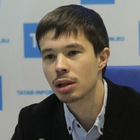
Ayrat Fayzrakhmanov Deputy Chairman of World Forum of Tatar Youth
-
This problem, not only in Tatarstan but also in other ethnic republics where ethnic languages are taught, was accompanied by constant information background. It was created by active group of parents who were for the right not to learn the ethnic language. I think that now they have finally evoked response from those who solves these issues.
However, this president's statement, in my opinion, can open Pandora's box and disrupt the ethnic balance that prevailed in the region. The Tatar language in Tatarstan is a state language. Accordingly, Tatarstan should ensure the knowledge of it by the citizens. This can only be done through the institution of school. If it is not taught, more than half of residents of cities of Tatarstan will simply never be able to speak it. The national public will increasingly resent the fact that the level of knowledge of the ethnic language is falling, as well as interest in it and its relevance. This will generate constant contradictions.
The second point. The requirements of these parents still have a certain amount of justice. More precisely, they have something that is really worth paying attention to. They say, for example, that the Tatar language is not in demand. Yes, it is poorly demanded in the region and its demand should be increased. For this there are appropriate legal mechanisms. They say that the Tatar language is taught in a bad manner, that children are forced. Yes, children are poorly interested in the subject, although this is a common problem — in schools they are forced to study, we have a small number of schools where children love to study. So, in the national republics they should focus on how to arouse children's interest in learning, improve the teaching of regional languages, methodologies, communicative practices greatly. The way so it was interesting to children, they had fun.
The work on this is being underway, there are already some albeit small results. We just should force the work, to show the results to the public, to parents, to increase the quality of teachers dramatically. According to my information, for example, our teachers of the Tatar language now get knowledge of the Singapore method of teaching, one of the most progressive in the world. We actually have examples of when students and parents are satisfied with the teaching of the language. I know ten schools of Kazan where children actually like the Tatar language. We just should scale and replicate these examples.
We have this opportunity so far. There is a large inertia in the secondary education, this won't work – the president said today and tomorrow all changed. There are laws, there are education standards. I have experience of teaching in school, and I must say that it is just unreal to change something dramatically here. Moreover, I think that Putin himself is not an advocate to make decisions like that, with ''guns blazing''. This period of time, let's say a year, we can use in order to boost the result.
In general, the knowledge by citizens of the state, international and regional languages is an international civilization norm. I think, Russia will come to this sooner or later.
-
-
-
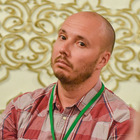
Ruslan Aysin political scientist
-
In my opinion, the president's statements do not quite reflect existing picture of reality. After all, the president himself and various government officials and experts have repeatedly told about the need to make every effort to preserve ethnic cultures, traditions and, above all, languages, which, I will remind, in Russia there are about 200, and that's huge cultural and civilizational heritage. If the state does not make an effort to preserve them, they will disappear. So nothing wrong with that Tatarstan — and as I understand it, it was about our republic — does everything to preserve the language as a foundation of the identity of the Tatars, and there is nothing wrong with that.
I am surprised that in some republics, such as Chechnya and Ingushetia, the paperwork is carried out in the language of the titular peoples, the TV broadcasts on it — and they have no complaints. Here, the claim is to Tatarstan.
I think that there worked a kind of lobby inside the Kremlin, some advisers surrounding the president, who put him on the table such report. I do not exclude that these people aim to undermine the republic from within, to weaken its political influence on domestic processes, to zero politically. All of these events — with Tatfondbank, non-renewal of the contract and the pressing of the Tatar language — are links in a chain.
Peoples of Tatarstan, with the exception of a small handful of people, enjoy learning the Tatar language. I have many such friends and acquaintances, and they have an understanding that bilingualism, knowledge of additional languages is a big plus in today's globalizing world. Moreover, the Tatar language, the knowledge of which allows you to easily communicate with 500-million Turkic world. I just recently returned from Kazakhstan, where I talked to Kazakhs in Tatar with pleasure.
I think the linguistic issue should be outside the sphere of competence of the president. The head of state should solve big strategic tasks, without entering the morass of political intrigues the politicians of the industrial-oligarchic groups make.
-